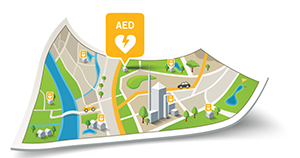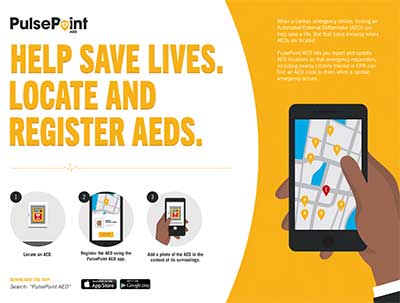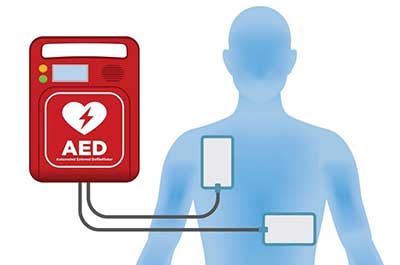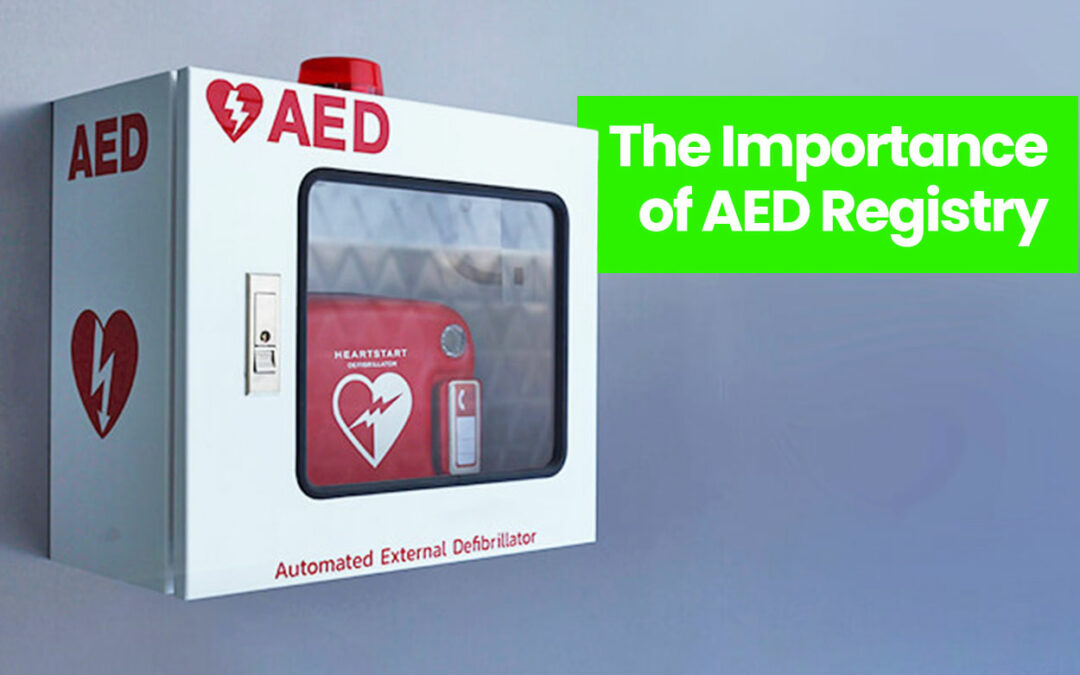The Importance of AED Registry: Accessibility, Maintenance, and Availability
Automated External Defibrillators (AEDs) are life-saving devices specifically designed to deliver an electric shock to the heart of individuals experiencing sudden cardiac arrest (SCA). These portable and easy-to-use medical devices have the potential to dramatically increase the survival rate of SCA victims by restoring a normal heart rhythm and allowing the heart to resume pumping blood effectively.
 WHAT is an AED Registry?
WHAT is an AED Registry?
An AED Registry is a comprehensive database that keeps track of all the publicly accessible Automated External Defibrillators (AEDs) in a specific area. In an emergency, when 911 is notified, operators can quickly identify the nearest AED by consulting the registry, directing bystanders to its location, and potentially increasing the chances of survival for the victim. Not only does the registry assist in locating these essential devices, but it also plays a vital role in raising awareness about their importance in our communities.
Fact: Nine of 10 Canadian provinces have an AED registry; they differ with regards to their management, content, and quality assurance processes.
WHY an AED Registry?
Accessibility:
In the event of an emergency, an AED Registry can be your best friend when it comes to finding the nearest publicly accessible AED. When you call 911, the dispatcher can quickly consult the registry and guide you to the closest available AED, potentially making all the difference for someone experiencing sudden cardiac arrest. By having this valuable information at hand, the AED Registry helps ensure that these life-saving devices can be easily located and put to use when every second counts.
Maintenance:
The best way to maintain an AED is with an AED Service Contract with SOS Emergency Response Technologies, it’s the perfect solution for maintaining the health and safety of your workplace.
SOS can offer an AED Service Contract that may include:
- Annual Inspection: A comprehensive Annual AED inspection
- Replacement of electrodes and battery at expiry: Ensuring that your device is always ready when you need it.
- On-site AED training review: Keep your staff up-to-date on the latest procedures, so they can respond quickly and confidently in case of an emergency.
- Replacement Parts: 10% discount on all accessories and replacement parts.
- Training: Access to SOS OHS First Aid training at preferred client rates.
- Products: Access to SOS’s full product line at preferred rates.
Availability:
An AED Registry serve as an invaluable resource for identifying areas in the community where public access to these life-saving devices is limited or nonexistent. By collecting and analyzing data on the locations of existing AEDs, registries can highlight gaps in coverage and help community leaders and emergency response organizations focus their efforts on installing AEDs in areas with the greatest need. In doing so, an AED Registry contribute to the creation of safer, more prepared communities, ultimately increasing the chances of survival for individuals experiencing sudden cardiac arrest in public spaces.
WHERE to Register?
 In BRITISH COLUMBIA:
In BRITISH COLUMBIA:
The PulsePoint Respond App is a fantastic tool that keeps you informed if there’s a potential out-of-hospital sudden cardiac arrest victim within 400 meters of your location anywhere in British Columbia. If a public access defibrillator is close by, the app will kindly guide you to its location. When you receive the alert and locate the patient, you can jump into action by performing hands-only CPR and, if available, using the AED until the professional responders show up. It’s a wonderful way to be proactive and help save lives in your community!
Who can join in?
If you’re in B.C. and able to provide CPR to a sudden cardiac arrest victim, you’re invited to download the PulsePoint app.
What you need to know:
- You must be trained in hands-only CPR.
- You’ll get info about the closest AED, so if you’re trained to use AEDs, you can send someone to grab it.
- If you’re unsure about using the AED, BCEHS call-takers will guide you through it.
- PulsePoint app covers all of BC, sending alerts if a victim is within 400 meters of your location.
AED Registry for BC here: PulsePoint Respond App
 In ALBERTA: Alberta Public Access to Defibrillation (PAD) Program
In ALBERTA: Alberta Public Access to Defibrillation (PAD) Program
The Alberta Public Access to Defibrillation (PAD) Program is dedicated to increasing survival rates from sudden cardiac arrest by motivating communities and equipping the public with the necessary knowledge and tools. By creating awareness around the importance of early intervention and fostering a supportive environment, the program encourages individuals to take an active role in improving emergency response within their community.
The Benefits
This AED Registry aims to boost survival rates from sudden cardiac arrest by inspiring communities and empowering the public to:
- Place Automated External Defibrillators (AEDs) in easily accessible public areas
- Enroll AEDs in the complimentary AHS Heart-Safe.ca database
- Communicate AED locations with 9-1-1 Emergency Medical Services Dispatch
- Participate in Cardiopulmonary Resuscitation (CPR) training
- Utilize an AED during medical emergencies
AED Registry for Alberta here: Alberta Public Access to Defibrillation (PAD) Program
Contact us for more information on Automated External Defibrillators

